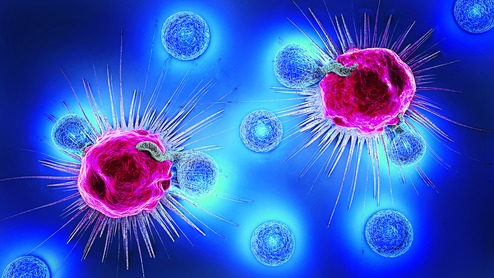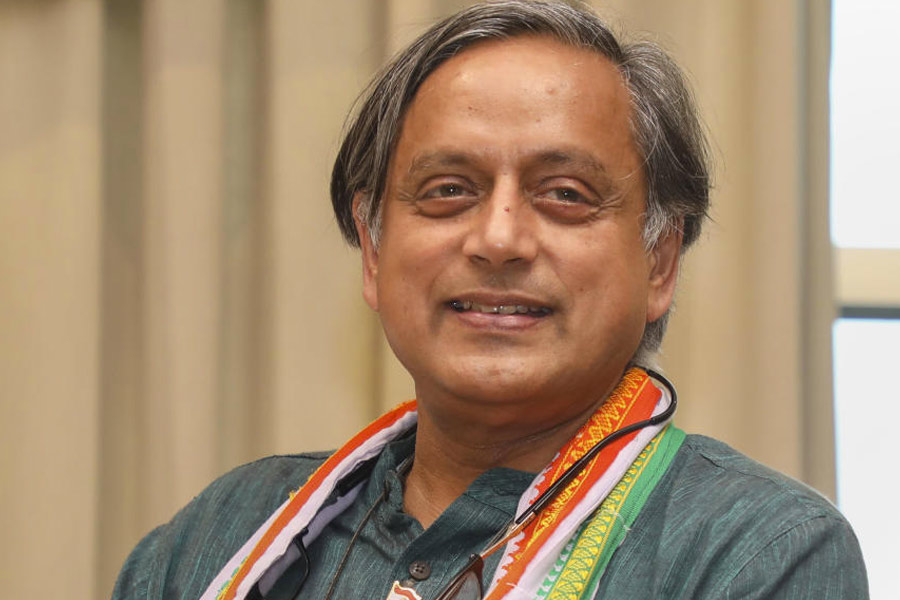
 Cancer is very complex and we will never find a cure or completely eradicate it." Mariano Barbacid had made this statement - a blow for many scientists - years ago. When asked whether he still held this view after getting to know cancer even better, he replies: Yes. Certainly. But then he points out a silver lining. "Science is always making important advances and nobody can say what the future will bring us."
Cancer is very complex and we will never find a cure or completely eradicate it." Mariano Barbacid had made this statement - a blow for many scientists - years ago. When asked whether he still held this view after getting to know cancer even better, he replies: Yes. Certainly. But then he points out a silver lining. "Science is always making important advances and nobody can say what the future will bring us."
Barbacid, now 69, led the team of researchers, at the National Cancer Institute in the US, who isolated the first human oncogene - a gene that has the potential to cause cancer - and the first mutation associated with it called H-RAS, in the spring of 1982. The Madrid-born scientist's findings, along with those made independently by two other groups, have been seminal in establishing the molecular basis of human cancer.
But Barbacid has always been modest about this achievement. He says, "I think that the discovery and isolation of human oncogenes was a multidisciplinary effort carried out by many laboratories that opened the new era of molecular oncology, an effort that has helped to understand the intricacies of cancer development at the molecular level." The two other human oncogenes that were isolated were the MYC and ABL.
Back in the late 70s, oncogenes were already known in retroviruses - a group of viruses that belong to the family Retroviridae and that carry their genetic blueprint in the form of ribonucleic acid (RNA). He says, "The discovery that such oncogenes were not viral genes but mutated forms of otherwise normal genes present in all of us - a discovery that fetched the Nobel Prize in Medicine for J. Michael Bishop and Harold Varmus in 1989 - opened the door to search for similar oncogenes in human tumours."
Soon after came the massive human genome sequencing project and, in its wake, analysis of tumours happened on a scale that is almost stupefying. A mountain of data has been assembled and research papers written with the tag RAS. Even though RAS appears to be such a big player, Barbacid is not a happy man. "As a scientist, the identification of the first human oncogene was extremely exciting, although I have to admit that right now it is a bit frustrating to realise that the 'job is not finished'. We still do not have any efficacious drugs to treat cancers caused by the mutant RAS oncogenes that we discovered so long ago," he says.
In fact, Barbacid was so excited about the possibility of a magic bullet for cancer that he joined pharmaceutical giant Bristol-Myers Squibb in 1988. There he started the concept of what is now known as precision medicine. It allows doctors to select treatments most likely to help patients based on genetic understanding of their disease, that is tailor-made cancer therapy.
Today, when people are diagnosed with cancer in countries like India, they usually receive the same treatment as others who have the same type and stage of cancer. Even so, different people may respond differently, and, until recently, doctors didn't know why. After decades of research, scientists now understand that patients' tumours have genetic changes that cause cancer to grow and spread. They also learned that the changes that occur in one person's cancer may not occur in others who have the same type. And, the same cancer-causing changes may be found in different types of cancer. Following this line of research, since 1998, most anti-cancer drugs launched are either small chemicals or biological reagents that selectively inhibit properties of cancer genes.
"Yet, precision medicine has had a limited impact on the overall survival of cancer patients, especially those with advanced or metastatic solid tumours such as carcinomas of the lung, colon and pancreas. Albeit conceptually attractive, this medicine has several limitations that have dampened the enthusiasm that initially welcomed it," says Barbacid.
The massive sequencing of cancer genomes carried out during the last few years has revealed that most tumours harbour thousands of mutations and dozens of cancer genes. Indeed, it is very likely that each tumour has a distinct mutational pattern. "The mutational complexity of advanced tumours, and the large variety of cancer genes present, often make precision medicines ineffective," he says. This is why the success (or failure) in cancer treatment depends on the stage at which the tumour is detected. If a tumour is diagnosed before it has spread (metastasis), surgery often leads to complete cures.
In 1998, Barbacid returned to Spain after two decades in the US with the assignment of creating the Spanish National Cancer Research Centre (CNIO). At CNIO, he built a novel network of tumour banks and designed biochips specifically to determine the exact genetic analysis of a tumour. This enables oncologists predict the behaviour of the tumour diagnosed and decide an optimum treatment. By 2011, CNIO became one of the top research centres in the world and he decided to quit administration and focus on research. "CNIO represents the implementation of a new model of scientific management in Spain that is allowing us to work with maximal flexibility and limited bureaucratic rules," he says. The scientist decided to go back to the lab bench to complete the "job he could not finish". He believes the war on cancer is far from over.
"The most important thing is that we continue working, in the laboratory as well as the clinic, to try to find solutions. Even if we cannot solve those problems today, perhaps we will be able to solve them in a not too distant future," he says.
Barbacid is a biochemist and will deliver the J.C. Bose Memorial Lecture at the Saha Institute of Nuclear Physics today on Precision Medicine and Cancer: Challenges and Opportunities










